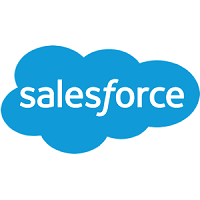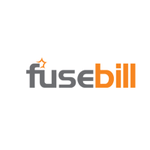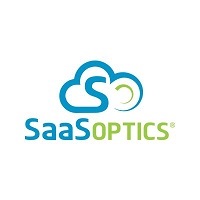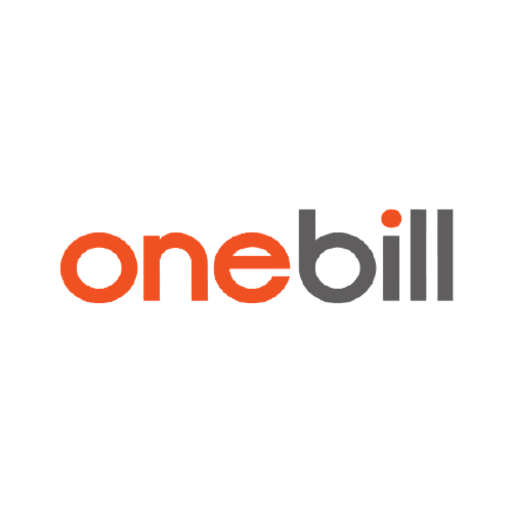Yes, subscription billing software can be accessed from multiple devices and platforms. Most subscription billing software is cloud-based, which means it can be accessed from any internet-connected device equipped with a web browser. Users can manage their subscriptions and make payments from desktops, laptops, tablets, and cellphones. Additionally, several subscription billing software vendors provide specialized mobile apps for a consistent experience across all platforms.
List of 20 Best Subscription Billing Software
Salesforce CPQ is a solution for simplifying subscription billing processes. With its automated and efficient system, Salesforce CPQ minimizes errors and saves time by reducing the need for manual intervention. Its flexible subscription management ca...Read More Salesforce CPQ
Experience the power of Ordway is a billing and revenue automation solution for thriving businesses. Simplify your pricing, invoicing, payment collection, and revenue recognition with this robust platform, eliminating the need for manual tasks. Effor...Read More Ordway
AcuSheet solution for all your accounting and bookkeeping needs. Our user-friendly software comes equipped with VAT capabilities, simplifying financial tracking and ensuring compliance with regulations. With precise MIS reporting, you can make inform...Read More AcuSheet
Fusebill is a top-notch recurring billing solution designed specifically for enterprises. Our software simplifies subscription management with its advanced features like customizable services, automated invoicing, and performance tracking for busines...Read More Fusebill
ChargeOver is an innovative subscription management software that simplifies your payment procedures and optimizes your time. With reliable customer support features, you can effortlessly monitor your revenue and business progress with its advanced a...Read More ChargeOver
Zoho Billing is a solution for subscription billing specifically created for smaller enterprises. Simplify the entire subscription process, from customer sign-up to payment handling, with Zoho Billing. Stay on top of your subscription business with t...Read More Zoho Billing
Chargebee is a recurring billing solution designed to simplify subscription management. With our user-friendly platform, you can easily generate timely invoices and say goodbye to complicated account logs. Let Chargebee handle your billing needs so y...Read More Chargebee
SpryBill is a cloud-based solution exclusively built for UCaaS and telecom providers to efficiently manage subscriptions, metered billing, customer support, and business analytics. With its advanced capabilities and user-friendly interface, SpryBill...Read More SpryBill
SimpleAccounts - your ultimate accounting companion for financial empowerment. With our software, you can easily track expenses, create invoices, manage taxes, and handle payroll all on your secure server. Simplify your businesss financial management...Read More SimpleAccounts
Rebilly integrates seamlessly with numerous payment gateways, providing you with the ability to accept payments from a variety of methods effortlessly. With this subscription billing solution, you can expand your payment options, making it easier for...Read More Rebilly
SaaSOptics is a subscription billing solution for B2B companies. Powered by advanced AI technology, this software delivers real-time data analysis and reporting of all your current and past subscriptions with a single click. No more cumbersome manual...Read More SaaSOptics
Invoicera is a invoicing and billing software that caters to the unique needs of small businesses, service providers, and freelancers. Say goodbye to the hassle of manual invoicing and streamline your billing process with our advanced features and us...Read More Invoicera
Marg ERP9+ Billing & Invoicing is a software for businesses of all types including retail, distribution, manufacturing, and more. With its advanced features and easy-to-use interface, Marg streamlines billing processes for enhanced efficiency. From E...Read More Marg ERP9+ Billing & Invoicing
OneBill solution for managing recurring billing and revenue for your business. Our comprehensive platform simplifies all aspects of the lead-to-revenue cycle and offers flexible billing options such as one-time, subscription, recurring, and usage-bas...Read More OneBill
Paddle is a subscription billing software designed for MacOS, SaaS, and Windows. It offers a complete set of features for handling taxes and invoicing, streamlining billing processes for all types of businesses. With Paddle, subscription management b...Read More Paddle
iEnterprise CRM is a cloud-based solution for small and medium businesses. Our highly customizable multi-user system is tailored to streamline your sales process and drive maximum sales for your entire organization. With its user-friendly interface a...Read More iEnterprise CRM
FastSpring is a recurring billing software designed to fuel the success of your business. With FastSpring, you can seamlessly handle multiple subscription plans, guarantee on-time payments from your customers, and retain their loyalty. Simplify your...Read More FastSpring
FreshBooks Select is a recurring billing solution designed to support the success of your online business. With its intuitive features, creating invoices becomes hassle-free, leading to faster payments. Flexible subscription options let you efficient...Read More FreshBooks Select
Recurly is solution for maximizing your subscription revenue. With its recurring billing features, it simplifies the process of growing your business. By seamlessly managing subscriptions, this software improves customer engagement and increases rete...Read More Recurly
Zuora - an advanced online payment gateway software that effortlessly integrates with your e-store or virtual POS system, offering your customers a secure and convenient payment experience. With instant transaction notifications, customers can easily...Read More Zuora
Learn More About Subscription Billing Software
- What Is Subscription Billing Software?
- What Are The Recent Trends In Subscription Billing Software?
- Benefits Of Using Subscription Billing Software
- Important Factors To Consider While Purchasing Subscription Billing Software?
- What Are The Key Features To Look For In Subscription Billing Software?
- Why Do Businesses Need Subscription Billing Software?
- How Much Time Is Required To Implement Subscription Billing Software?
- What Is The Level Of Customization Available In Subscription Billing Software?
- Which Industries Can Benefit The Most From Subscription Billing Software
- Conclusion
What Is Subscription Billing Software?
Subscription billing software is an essential tool for organizations that provide subscription services or products. It automates and streamlines the whole billing process, from invoice creation to payment collection, making it a must-have for any subscription-based business aiming to expand. At its foundation, subscription billing software controls recurring billing cycles, enabling businesses to charge clients on a regular basis for their services or products.
It eliminates the need for manual invoicing and payment tracking, saving organizations both time and resources. It also includes tools such as configurable invoice templates, adjustable billing plans, and automated payment reminders to make the billing process more effective and personalized. One of the primary benefits of subscription billing software is its flexibility to manage a variety of billing models, such as monthly, yearly, or usage-based, which caters to organizations of all sizes and sorts.
It enables easy management of numerous subscriptions, upgrades, downgrades, and even cancellations, ensuring a seamless experience for both businesses and customers. Aside from billing, subscription billing software provides crucial functionality such as customer management, product cataloging, and revenue reporting. It allows businesses to measure subscription KPIs such as MRR (Monthly Recurring Revenue), churn rates, and retention rates, which provide vital information for key business choices.
Security is also a high consideration for subscription billing software, which handles sensitive customer information and payment details. Most software provides secure payment channels and adheres to industry-standard security protocols, ensuring data protection and fraud prevention.
What Are The Recent Trends In Subscription Billing Software?
The world of subscription-based enterprises is continuously evolving, and with it, the demand for effective and simplified subscription billing software grows. As technology advances and consumer preferences change, subscription billing software has followed a number of recent trends.
Let's explore, we will explore the important trends that are affecting the subscription billing software business and what buyers should look for when searching for the appropriate solution.
1. Automated Billing And Payment Processing: Subscription business models have shifted dramatically in recent years toward automated billing and payment processing. This tendency has also been reflected in subscription billing software, which places a greater emphasis on automating the billing and payment processes. This includes features such as automatic invoicing, scheduled payments, and auto-renewals, which help organizations manage and collect payments from members.
2. Integration With Other Services: Another important trend in subscription billing software is the integration of additional business tools and services. Businesses can now handle all of their key duties from a single central platform, resulting in a more seamless experience. Integration choices range from customer relationship management (CRM) systems to inventory management, and they are becoming increasingly crucial as organizations seek to streamline their operations.
3. Personalization And Flexibility: Subscription businesses frequently rely on providing unique services and experiences to their clients, and this trend has carried over into the subscription billing software market. Many software vendors now allow you to build billing plans and pricing models to meet the specific demands of your organization. This enables more personalized and adapted subscription options for clients, resulting in higher satisfaction and retention.
4. Analytics And Reporting: Data-driven insights have become an important part of business decision-making, and subscription billing software is no exception. The latest software systems have powerful analytics and reporting features that provide firms with real-time data on revenue, attrition rates, and client profiles. This enables for more accurate forecasting and informed pricing and marketing decisions.
5. Security And Compliance: As data privacy and security issues grow, ensuring the security and compliance of subscription billing software has become a top priority. Buyers should look for software vendors who provide safe payment gateways and comply with standards such as PCI DSS and GDPR. This not only protects organizations from potential data breaches, but also increases customer trust.
Benefits Of Using Subscription Billing Software
Subscription billing software is an essential tool for organizations that provide subscription-based services or goods. It automates the whole billing process, from customer sign-up to payment processing, making it a must-have solution for any firm trying to streamline its recurring billing operations.
Here are the main advantages of using subscription billing software:
1. Streamlines the Billing Process: Subscription billing software allows organizations to manage their whole billing process in one place. Customers may quickly sign up, select their subscription plan, and make payments using a single platform. This removes the need for manual invoicing and lowers the risk of billing errors or delays.
2. Increases Efficiency And Saves Time: Automating the billing process improves accuracy while also saving time. Businesses can save time and effort by using subscription billing software to generate and distribute invoices automatically. This enables staff to focus on more critical activities, enhancing total efficiency.
3. Ensures Timely Payments: One of the most significant benefits of adopting subscription billing software is that it ensures timely and consistent payments. Businesses can create recurring billing schedules, and customers can securely save their payment information. This minimizes the possibility of lost or late payments and provides a consistent financial flow for the company.
4. Provides Flexible Billing Choices: Subscription billing software allows organizations to personalize their billing choices based on their individual requirements. They can provide a variety of options, including monthly, annual, and usage-based, and users can upgrade or reduce their subscriptions at any time. This improves the customer experience and can attract and retain more customers.
5. Insights And Analytics: Subscription billing software gives organizations vital information about their customers' activity and payment history. This information can help organizations make more informed pricing, promotion, and marketing decisions in order to increase client retention and revenue growth.
6. Integration With Other Systems: Most subscription billing software is easily integrated with other systems, such as accounting software, CRM systems, and payment gateways, allowing it to be a seamless addition to a company's current software stack. This saves time while also ensuring accurate and consistent data across all systems.
Important Factors To Consider While Purchasing Subscription Billing Software?
When it comes to choosing subscription billing software, there are several crucial things to consider in order to make an informed and strategic selection. By carefully examining these aspects, you may select software that fulfills your company's requirements, is user-friendly, and cost-effective.
1. Features And Functionality: The software's features and functionality are the most important factors to evaluate. Look for key features such as automatic invoicing, payment processing, and subscription management tools. It should also be able to accept many payment methods and currencies in order to serve a larger consumer base.
2. Integration Capabilities: Your subscription billing software should work effortlessly with your current systems and tools, such as CRM, accounting software, and eCommerce platforms. This will streamline your operations, make data management easier, and lessen the likelihood of errors.
3. User-Friendly Interface: A user-friendly interface is critical to the seamless operation of your company processes. The software's layout should be straightforward and intuitive, with simple navigation and organized menus. This saves time and effort for your employees, allowing them to focus on more important responsibilities.
4. Customization Options: When it comes to billing processes, each organization has its own set of needs and requirements. Look for software that may be customized to meet your specific business demands. This not only improves the efficiency of your process, but it also saves you money on superfluous features.
5. Scalability: As your business expands, so will your consumer base. Your subscription billing software should be able to handle a rising number of subscribers and transactions while maintaining high speed. Choosing a scalable solution will save you the time and money of transitioning to a new system in the future.
6. Security Measures: When picking subscription billing software, security should be a major consideration because it involves sensitive client data and payment information. Ensure that the software adheres to industry best practices and complies with relevant standards such as PCI DSS.
7. Customer Support: In the event of a technical problem or inquiry, a dependable customer support team is critical for addressing and resolving it immediately. Look for software that provides 24/7 customer assistance by phone, email, or live chat.
8. Pricing: Subscription billing software is available in a variety of rates, from free to high-end. Consider your budget and thoroughly evaluate the features and functionality given by various software to determine which one provides the most value for your money. Remember that the cheapest solution isn't always the most cost-effective in the long run.
By taking these crucial elements into account, you can choose the best subscription billing software for your business, streamlining your billing procedures and contributing to your overall growth and success. Remember to conduct extensive research and comparisons before making a decision to ensure an informed and smart investment.
What Are The Key Features To Look For In Subscription Billing Software?
Subscription Billing Software is a critical tool for firms that rely on recurring revenue streams like subscriptions and memberships. With the rising demand for subscription-based services, the market for subscription billing software has expanded significantly. As a buyer, it can be difficult to select the best subscription billing software for your company.
To assist you make an informed selection, we've created a list of critical characteristics to look for when comparing subscription billing solutions.
1. Automated Invoicing And Billing: The major purpose of subscription billing software is to automate the invoicing and billing processes. It should be able to generate and transmit recurring bills to consumers at predetermined intervals, minimizing the need for manual data entry and lowering the risk of human error.
2. Flexible Price Plans And Options: Your subscription billing software should allow you to provide your clients a variety of pricing plans and options, such as monthly, quarterly, or annual subscriptions. It should also allow for prorated billing for mid-cycle sign-ups or cancellations.
3. Multiple Payment Options: To ensure a consistent user experience, your subscription billing software should offer a variety of payment gateways and methods, such as credit/debit cards, PayPal, and ACH (automated clearing house).
4. Revenue Recognition And Analytics: Monitoring your company's financial health and performance is critical. As a result, your subscription billing software should include powerful revenue recognition and analytics tools that provide insights into your recurring revenue, attrition rate, and other crucial indicators.
5. Integrations And API Support: Your subscription billing software should be easy to link with other tools and systems, such as CRM and accounting software, in order to further optimize your company processes. It should also provide API support for customized integrations.
6. Customer Management: A decent subscription billing software should include customer management features that allow you to track customer data and details, manage subscriptions, and handle upgrades and downgrades.
7. Dunning Management: Dunning is the practice of recouping missed payments. Your subscription billing software should have dunning management tools that automatically retry unsuccessful payments or send payment reminders to consumers.
8. Tax Administration: For firms operating in many tax jurisdictions, tax management tools in subscription billing software are critical. It should be capable of handling a wide range of taxes and tax rules to ensure accurate and timely tax compliance.
Why Do Businesses Need Subscription Billing Software?
Subscription billing software is a valuable tool for any organization that generates recurring revenue or provides subscription-based products or services. In today's digital world, more and more firms are using a subscription model to boost customer retention and produce consistent cash flow. This means that having an effective and dependable subscription billing system is critical to market success.
First and foremost, subscription billing software is intended to streamline the billing process. This program allows businesses to simply set up regular payments for their subscribers, removing the need for human invoicing and lowering the chance of errors. This guarantees that clients are billed correctly and on schedule, which enhances the overall customer experience.
Furthermore, subscription billing software provides organizations with real-time data and analytics, allowing them to make smart pricing, packaging, and marketing decisions. This data enables firms to better understand their customers' tastes and behavior, resulting in more targeted and effective marketing initiatives. Another significant advantage of subscription billing software is its capacity to accept a variety of payment methods.
This covers credit and debit cards, direct debits, and even mobile wallets, making it easy for customers to pay for their subscriptions. This not only enhances the consumer experience, but it also raises the likelihood of payment acceptance. Furthermore, subscription billing software provides a high level of protection for organizations and their clients.
Businesses may be confident that their customers' sensitive information is safe from any cyber attacks thanks to features such as fraud detection and secure payment channels. In addition to these advantages, subscription billing software connects with other critical business tools like accounting and customer relationship management systems. This interface improves productivity and reduces human data entry, saving enterprises time and resources.
How Much Time Is Required To Implement Subscription Billing Software?
The deployment time for subscription billing software varies depending on the complexity of your business requirements and the capabilities provided by the software vendor. However, most subscription billing solutions may be installed in a couple of weeks or even days. Typically, the implementation process comprises creating your account, configuring your pricing options, integrating with your current CRM or accounting software, and testing the system before going live.
This process can be finished in a few weeks, particularly if you have a dedicated team overseeing the installation. On the other side, if your organization requires changes or complicated integrations, the deployment process may take longer. It may also vary based on your team's availability and the software provider's reaction. To achieve a successful and timely installation, you must clearly grasp your business requirements and properly convey them to the software provider.
This not only saves time, but also helps to minimize delays and issues during the implementation process. Furthermore, credible subscription billing software suppliers give complete support and onboarding services to help you navigate the deployment process. This can greatly minimize the overall time necessary for implementation, allowing you to start using your new software fast and efficiently.
What Is The Level Of Customization Available In Subscription Billing Software?
Subscription billing software allows for extensive flexibility to satisfy a wide range of corporate demands. It enables businesses to adjust their billing procedures to their individual needs, making it an invaluable tool for streamlining revenue management. Subscription billing software's level of customization varies per platform, however it often contains the following features:
1. Plan And Product Customization: Subscription billing software enables organizations to build and tailor numerous plans and products based on pricing structure, features, and billing cycles. This enables businesses to provide individualized solutions to their customers, resulting in increased satisfaction and retention rates.
2. Customized Invoicing: Subscription billing software allows businesses to customize their billing invoices with branding, corporate information, and layout. They can also add or remove fields and provide customized instructions to customers, making the process more efficient and professional.
3. Flexible Payment Options: Subscription billing software supports a variety of payment methods, including credit cards, bank transfers, and PayPal. Businesses can select which payment methods to offer their consumers and set up recurring invoicing for automatic payments.
4. Tailored Reporting: Subscription billing software provides powerful reporting features, allowing businesses to track and evaluate a variety of subscription management parameters. They can tailor reports to highlight key KPIs and gain a better knowledge of their revenue streams.
5. Integration With Other Tools: Subscription billing software can work with CRM, accounting software, and customer support services. This enables firms to optimize their procedures and maintain a centralized view of client data.
Overall, the level of flexibility possible in subscription billing software enables organizations to create a personalized and efficient billing system that is tailored to their specific requirements. It also enables them to remain adaptable and responsive to changing customer expectations, making it an indispensable tool for modern enterprises.
Which Industries Can Benefit The Most From Subscription Billing Software
Subscription billing software is a versatile solution that may help a variety of industries, including traditional subscription-based businesses and growing internet services. This comprehensive program automates the billing process, allowing organizations to better manage their recurring revenue models and improve overall productivity. The media and entertainment business can tremendously benefit from subscription billing software.
With the proliferation of streaming services and online content, subscription-based models have become the norm. Media organizations can use subscription billing software to set up regular payments and manage consumer subscriptions, lowering the risk of revenue loss caused by expired subscriptions or billing problems. The program is also extremely advantageous to software-as-a-service (SaaS) providers.
SaaS organizations can use subscription billing software to easily manage their monthly or annual billing cycles, as well as handle upgrades, downgrades, and cancellations. This not only speeds the invoicing process, but also improves customer retention and income potential. Subscription billing software can be extremely beneficial to e-commerce enterprises.
With the advent of subscription-based e-commerce models, particularly in industries such as beauty and food, software can assist in managing recurring orders, payments, and subscription start/end dates. This improves client happiness and loyalty while also reducing the business's administrative tasks. Subscription billing software can also be useful in professional services such as consulting and law.
The software helps you to create and manage service subscriptions, automate the billing process, and ensure that clients pay on time. Aside from these industries, subscription billing software can help almost any organization with a recurring revenue model. This encompasses businesses such as telecommunications, healthcare, and education. Subscription billing software is a useful tool for organizations of all sizes and sectors because it saves time and automates payments.
Conclusion
To summarize, investing in subscription billing software is a sensible move for organizations of any size. This software not only streamlines your billing procedures, but it also saves time, eliminates errors, and enhances the overall client experience. When deciding which subscription billing software to use, it is critical to analyze your individual requirements and goals, as well as the features and functionality of each option.
Look for software that is flexible, customizable, and integrates with your existing systems. Another important thing to examine is the vendor's reputation and capacity to provide dependable customer service. Do not be hesitant to ask for product demos and references from current clients. Remember, the best subscription billing software should help you grow your business and stay ahead of the competition.
With the facts and insights provided in this buyer's guide, you can make an informed decision and select the finest software for your business requirements. We hope you found this advice useful, and best wishes for the successful implementation of your new subscription billing software.
Subscription Billing Software FAQ's
Can Subscription Billing Software Be Accessed Across Multiple Devices And Platforms?
Is Subscription Billing Software Future-Proof And Adaptable To Emerging Technologies Like AI, Blockchain Or IoT?
Yes, subscription billing software is intended to be future-proof and adaptable to new technologies like AI, blockchain, and IoT. These software systems are frequently updated and can combine with new technologies as they become available.
This means that businesses that use subscription billing software can stay ahead of the competition by leveraging the most recent innovations to improve their billing operations and client experience. Furthermore, with the increasing popularity of subscription-based models, subscription billing software will change to accommodate the changing needs of businesses and customers.
Is There A Free Trial Offered To Assess Subscription Billing Software Before Committing?
Yes, most subscription billing software firms provide a free trial time for potential customers to test the product and its capabilities before making a purchase. This allows them to evaluate the software's usability, suitability for their business requirements, and overall effectiveness. Free trials normally last 14 to 30 days and do not need an upfront payment. It is recommended that you take advantage of the trial time to discover whether the software is a good fit for your business.
Does Subscription Billing Software Offer Data Security Features And Meet Regulatory Compliance Standards?
Yes, most subscription billing software solutions include data security features like encryption, user access limits, and secure servers to safeguard sensitive client information. They also follow several regulatory compliance requirements, including PCI-DSS, GDPR, and HIPAA.
These safeguards secure the security and confidentiality of client information, allowing organizations to maintain trust and comply with regulatory requirements. To protect your company's and your customers' data, you should use subscription billing software that prioritizes data security and compliance.
Can Subscription Billing Software Integrate Seamlessly With Existing Tools And Platforms?
Yes, subscription billing software can be smoothly integrated with existing tools and platforms. The majority of subscription billing software is designed to integrate with common tools and platforms, like as accounting software, CRM systems, and payment gateways.
This allows organizations to handle subscriptions and billing processes directly from their existing systems, eliminating the need for human entry or data transfers. This connection streamlines operations, increases productivity, and provides a better experience for both businesses and customers.






















